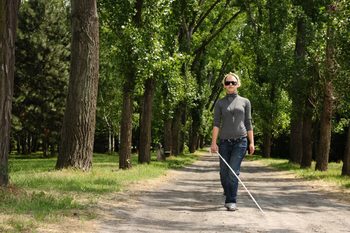 A gene therapy approved by the FDA for treating Leber congenital amaurosis (LCA), a rare, inherited form of blindness, has given many people hope. However, new research from the University of Pennsylvania has found that it may only be effective when used at the proper time. The research team worked with canine models of advanced stage LCA; their findings appear in the journal Molecular Therapy.
A gene therapy approved by the FDA for treating Leber congenital amaurosis (LCA), a rare, inherited form of blindness, has given many people hope. However, new research from the University of Pennsylvania has found that it may only be effective when used at the proper time. The research team worked with canine models of advanced stage LCA; their findings appear in the journal Molecular Therapy."Earlier work by our group and others had suggested that if you treated the disease at a time when the retina was degenerating, that degeneration continued, in people and in dogs," explained Gustavo D. Aguirre of Penn's School of Veterinary Medicine. "This was in spite of short-term gains in vision. We wanted to follow up to get details about the extent of retinal degeneration that would still be compatible with a lasting effect."
SDCB offers several programs that can assist people living with vision loss or blindness. Please contact us today to learn more.
"Effectiveness of Gene Therapy for Blindness Depends On Timing"



